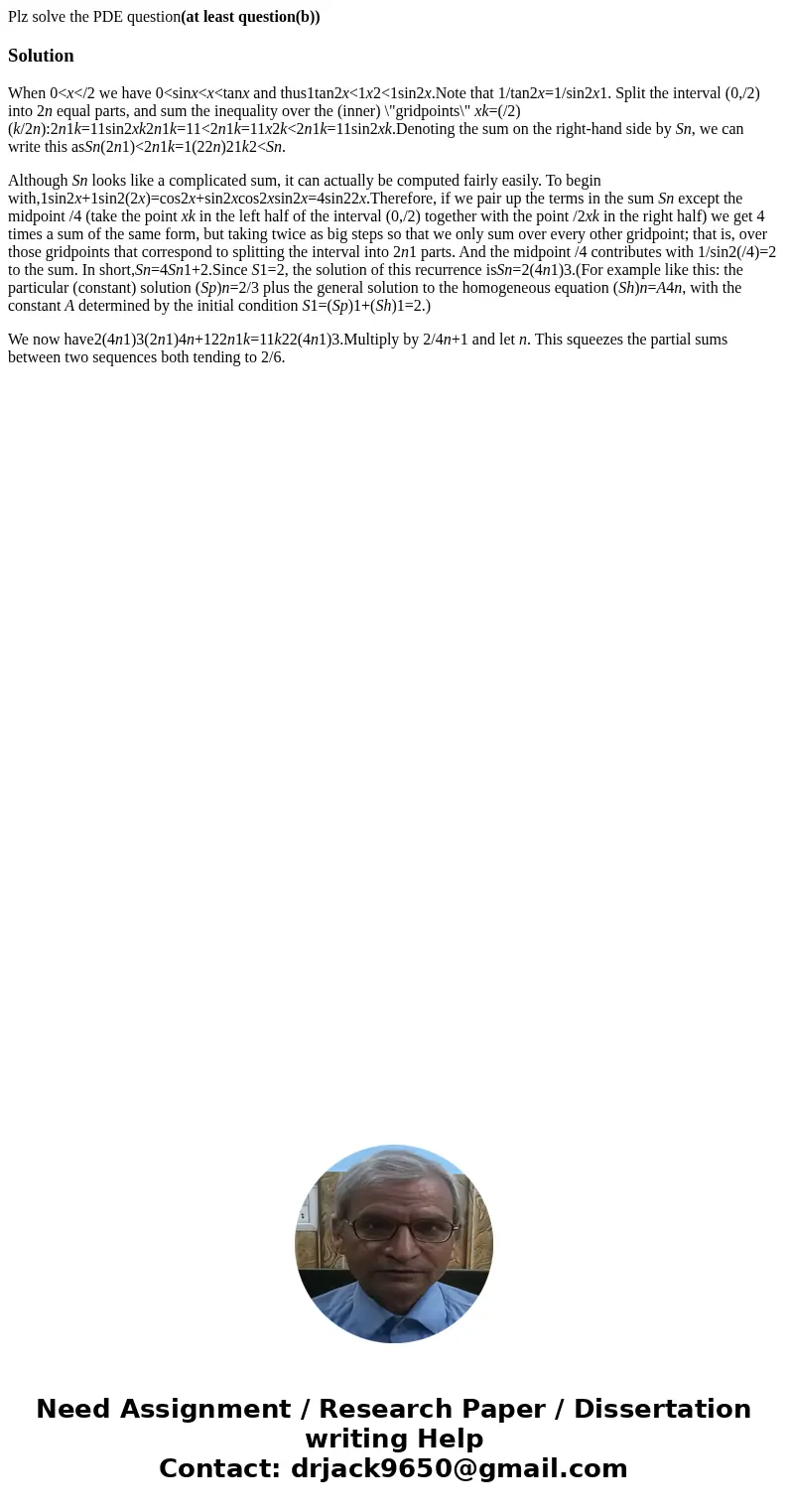Plz solve the PDE questionat least questionbSolutionWhen 0
Plz solve the PDE question(at least question(b))
Solution
When 0<x</2 we have 0<sinx<x<tanx and thus1tan2x<1x2<1sin2x.Note that 1/tan2x=1/sin2x1. Split the interval (0,/2) into 2n equal parts, and sum the inequality over the (inner) \"gridpoints\" xk=(/2)(k/2n):2n1k=11sin2xk2n1k=11<2n1k=11x2k<2n1k=11sin2xk.Denoting the sum on the right-hand side by Sn, we can write this asSn(2n1)<2n1k=1(22n)21k2<Sn.
Although Sn looks like a complicated sum, it can actually be computed fairly easily. To begin with,1sin2x+1sin2(2x)=cos2x+sin2xcos2xsin2x=4sin22x.Therefore, if we pair up the terms in the sum Sn except the midpoint /4 (take the point xk in the left half of the interval (0,/2) together with the point /2xk in the right half) we get 4 times a sum of the same form, but taking twice as big steps so that we only sum over every other gridpoint; that is, over those gridpoints that correspond to splitting the interval into 2n1 parts. And the midpoint /4 contributes with 1/sin2(/4)=2 to the sum. In short,Sn=4Sn1+2.Since S1=2, the solution of this recurrence isSn=2(4n1)3.(For example like this: the particular (constant) solution (Sp)n=2/3 plus the general solution to the homogeneous equation (Sh)n=A4n, with the constant A determined by the initial condition S1=(Sp)1+(Sh)1=2.)
We now have2(4n1)3(2n1)4n+122n1k=11k22(4n1)3.Multiply by 2/4n+1 and let n. This squeezes the partial sums between two sequences both tending to 2/6.

 Homework Sourse
Homework Sourse